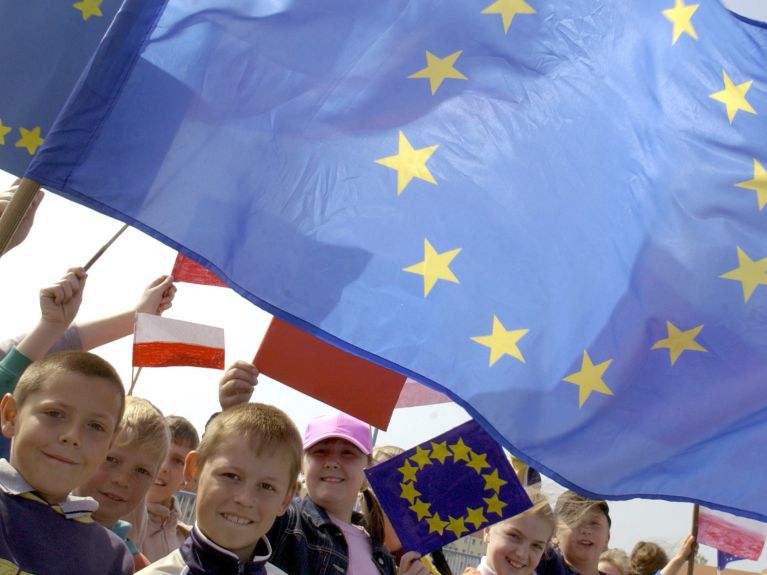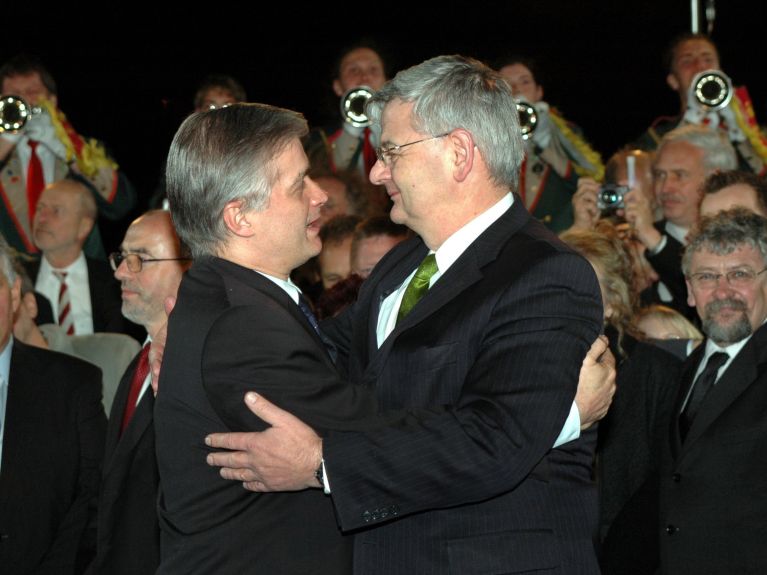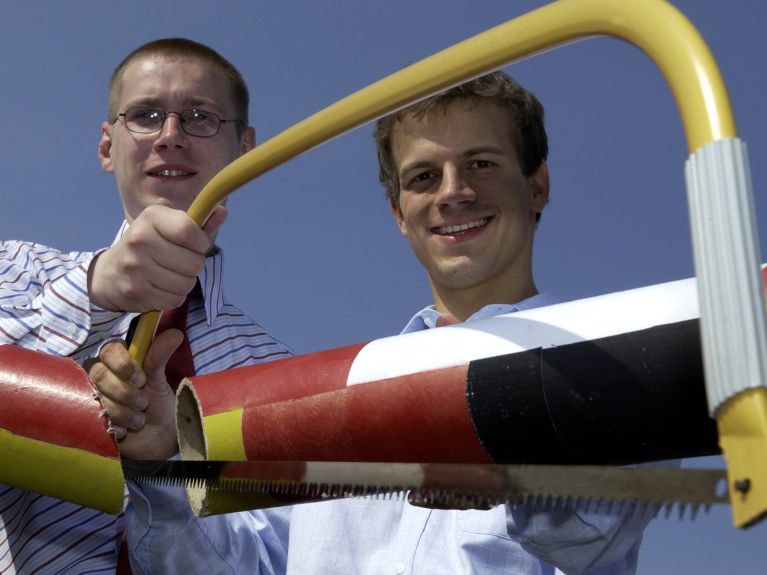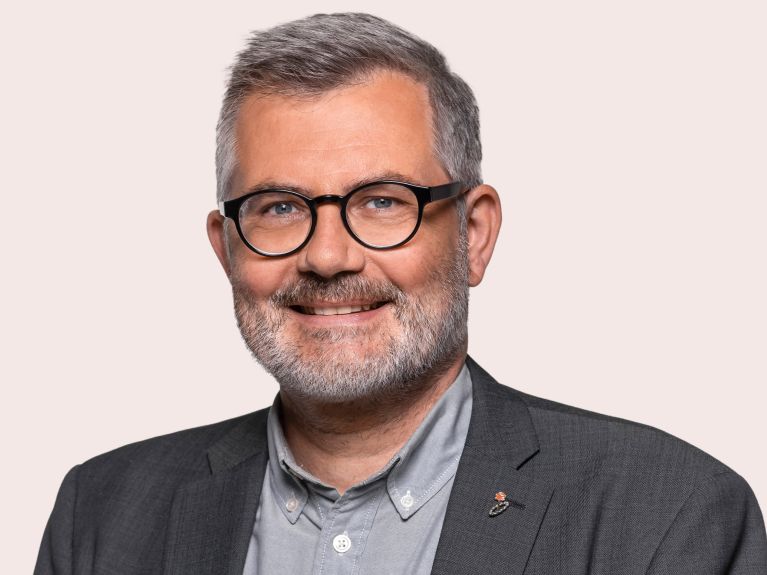“A truly magical moment for Europe”
20 years of EU eastern enlargement: Germany and Poland have become good neighbours.

“Poland’s accession to the EU has brought countries back together that had been artificially separated by the Iron Curtain. Poland has returned to the heart of Europe – a truly magical moment for Europe,” says Dietmar Nietan, the German government’s coordinator of German-Polish cooperation. “Almost exactly 20 years ago, on 1 May 2004, I stood among a euphoric crowd of people on the Oder bridge between Frankfurt/Oder and Słubice. At midnight on the dot, the then Foreign Minister Joschka Fischer and his Polish counterpart Włodzimierz Cimoszewicz opened the border between Poland and Germany. As a member of the Bundestag, I had travelled to Frankfurt to experience this historic moment for myself,” recalls Anna Lührmann, minister of state at the Federal Foreign Office, on the website of the Heinrich Böll Foundation. That same night, hundreds of people crossed the Oder bridge between Germany and Poland in both directions, taking advantage for the first time of the right to freedom of movement of persons. Since EU enlargement, the division of Europe - around 15 years after the fall of the Iron Curtain - has finally ended.

The Iron Curtain, the heavily fortified and sealed off border between the communist states in the east and the democracies in the west, had divided Europe for more than half a century following the end of the Second World War. The borders only opened in 1989 following a strong push for freedom in the east. For the new member states from the former communist part of Europe, joining the EU marked a symbolic end to their battle for freedom and democracy. “This was thanks in part to the Polish people themselves – with the Solidarność movement they played a key role in bringing down the Iron Curtain,” says Nietan.
Ultimately, it will always depend on the people themselves.
Ten countries joined the EU on 1 May: besides Poland, these were the former Soviet republics of Estonia, Latvia and Lithuania, plus the Czech Republic, Slovakia, Hungary, Slovenia, Malta and Cyprus. The EU grew from 15 to 25 members - and increased its population by nearly 75 million new citizens. Roughly half of them lived in Poland. In a referendum a year earlier, 77 percent had voted in favour of joining the EU. The Bundestag had also voted on the move: on 3 July 2003, German members of parliament voted almost unanimously for EU enlargement.

No matter which stance on Europe was adopted by Poland’s various governments, support for EU membership among the population never fell below 80 percent. “Poland’s accession to the EU is also clear proof in my opinion that ultimately it will always depend on the people themselves, and that no government or apparatus of power can stand in the way of their will forever,” says Nietan: “That’s why I believe it is important for us to look carefully at how we can bring the two major elements of bilateral relations - civil society and the border regions - even closer together, forging even closer ties between them.”

The anniversary of enlargement will also be celebrated: together with the European Parliament and partners from Germany, Poland and the Czech Republic, the representation of the EU Commission is hosting a festival of Europe on 27 April. The location was well chosen - the festival will take place at the border triangle near Zittau in Saxony where Germany, Poland and the Czech Republic converge. The festival will be opened by the three mayors of Zittau, Bogatynia and Hrádek nad Nisou – towns that have joined an alliance which, despite all the optimism, would have been virtually impossible to imagine 20 years ago. It’s not only celebrations that are on the agenda this year, however: European elections will also be taking place between 6 and 9 June. German-Polish cooperation coordinator Dietmar Nietan: “2024 is another important year when it comes to setting the future course for Europe. In our Europe, Poland carries considerable weight in political, economic and military terms. Together with Poland and France in the Weimar Triangle, we are committed to Ukraine and the security of NATO’s eastern flank. We are returning to a close friendship and neighbourly relations with our Polish partners.”